A LITTLE OF MY STORY
We can buy almost everything, but not happiness. To truly be happy, make someone else happy.
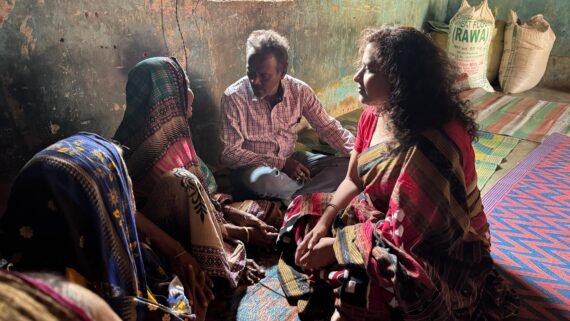 It is said by many, “Happiness doesn’t result from what we get, but from what we give.”
It is said by many, “Happiness doesn’t result from what we get, but from what we give.”
We often take many things around us for granted. Modern civilization has undergone a dramatic transformation with modernization, but I’m sure it didn’t happen overnight. Just as a tree bears fruit and flowers only after a seed is planted and its roots nurtured, the age-old traditional know-hows and basic life skills must have laid the foundation for many of our civilized practices today. Some of these practices are not only still in use in remote areas but also support livelihoods for many.
As a member of the South Asian Study Initiatives (SASI), a nonprofit dedicated to raising awareness and building support systems for indigenous artisans, I am often moved by the stories I come across. Dr. Annapurna Pandey ji, a founding member of SASI, once shared her experience visiting a Thengapali village, where women not only struggle to earn a living but also work tirelessly to protect their nearby forests.
Inspired by her account, during my visit to India in 2025, I set out for a village on February 11th. I met Bhagyalakshmi Biswal from the Vasundhara Organization in Ranapur, about 30 km away from Bhubaneswar. She educated us about the village we were about to visit, a further 45 km drive deep into the dense forest.
Gochha, a village in Barasahi Gram Panchayat of Sarankul Tehsil, Nayagarh district, Odisha, is the last settlement before the forest begins. With just 49 households of modest mud homes and a small population of 186, Gochha isn’t a place that often finds itself on maps or milestones. But I was told that this village has always drawn its strength from nature and from the quiet resilience of its women.
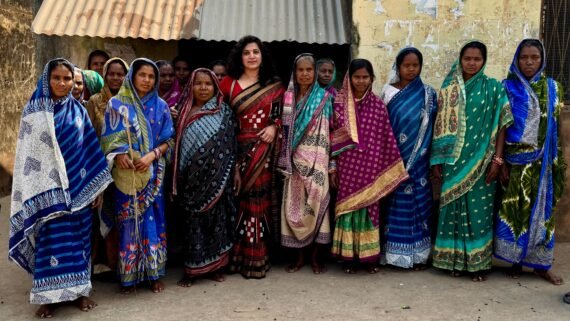 Upon arrival, I was welcomed by a cheerful women’s group busy preparing for an upcoming Devi festival. Their energy was infectious, and the miraculous tribal goddess stories they shared gave me goosebumps. Later, we gathered in a small, old, dilapidated room, where they shared their struggles and daily routines.
Upon arrival, I was welcomed by a cheerful women’s group busy preparing for an upcoming Devi festival. Their energy was infectious, and the miraculous tribal goddess stories they shared gave me goosebumps. Later, we gathered in a small, old, dilapidated room, where they shared their struggles and daily routines.
There, I had the privilege of witnessing firsthand the remarkable craftsmanship of tribal women who create eco-friendly disposable plates and bowls from Shala and Siali leaves. This traditional skill, passed down through generations, not only sustains their livelihoods but also offers an environmentally sustainable alternative to plastic, contributing meaningfully to forest conservation. I learned how these women venture deep into the forest early each morning to collect Shala and Siali vine leaves and then stitch them meticulously with natural sticks to create disposable tableware. If uninterrupted, a woman can produce up to 400 pieces per day, but household responsibilities often limit this potential.
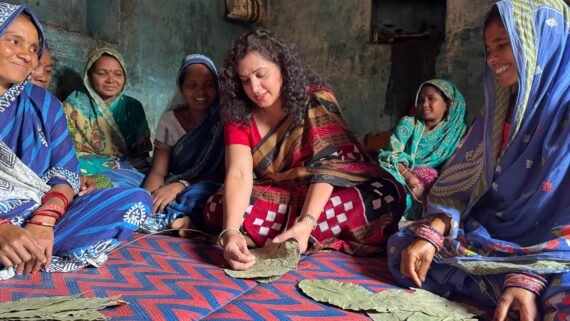 Despite their resilience and skill, these women face many challenges: limited access to markets, inadequate resources, and a lack of financial support to scale their production. They earn just ₹40-₹100 for 100 leaf plates, making between ₹3,000 to ₹6,000 a month. It is barely enough to support their families. Phone networks are poor within a 2–3 km radius. Though the fertile forest soil helps supplement their food supply with fresh vegetables, protecting these crops from wild animals remains a constant challenge.
Despite their resilience and skill, these women face many challenges: limited access to markets, inadequate resources, and a lack of financial support to scale their production. They earn just ₹40-₹100 for 100 leaf plates, making between ₹3,000 to ₹6,000 a month. It is barely enough to support their families. Phone networks are poor within a 2–3 km radius. Though the fertile forest soil helps supplement their food supply with fresh vegetables, protecting these crops from wild animals remains a constant challenge.
When I asked about the role of men in the village, their responses were heartbreaking. Most men do not have steady jobs, and many spend their earnings on local alcohol. Some even become abusive and demand a share of the women’s hard-earned income to fund their drinking habits. The women had bravely protested the establishment of a local alcohol production unit, but liquor still finds its way in. As a result, the burden of running the household and raising children rests solely on women’s shoulders.
Education is another uphill battle. The primary school is 2 km away, and the nearest high school is 20 km away. I learned that only two children from the village have ever pursued education beyond the 10th grade.
With the growing urban demand for sustainable alternatives and eco-friendly tableware, their products have immense potential. Their craftsmanship needs only a little refinement to better suit market demands. Modern machines can significantly increase production capacity and reduce manual labor, but the lack of steady electricity remains a barrier. Thankfully, a solar energy company has promised to help address this issue.
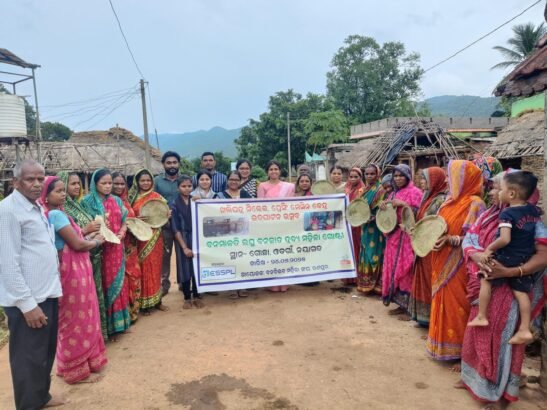 Following this visit, I made it my mission to seek financial support to create a lasting impact, uplifting these women, protecting the environment, and fostering a self-reliant future. Destiny was at work. (Read here the heartwarming story of finding funds for the very village I visited.) I made a short vlog with the help of a friend, Gourahari Biswal, who had visited with me. That documentary connected me to a generous soul, Mr. Sudhir Jaiswal, CEO of ESSPL. We both believe not just in equality, but in equity. My story must have touched him deeply, as he promised to arrange CSR funding through ESSPL.
Following this visit, I made it my mission to seek financial support to create a lasting impact, uplifting these women, protecting the environment, and fostering a self-reliant future. Destiny was at work. (Read here the heartwarming story of finding funds for the very village I visited.) I made a short vlog with the help of a friend, Gourahari Biswal, who had visited with me. That documentary connected me to a generous soul, Mr. Sudhir Jaiswal, CEO of ESSPL. We both believe not just in equality, but in equity. My story must have touched him deeply, as he promised to arrange CSR funding through ESSPL.
Another senior lead from Vasundhara, Prashant Kumar Sahu, came to my rescue, taking care of the logistics and providing the necessary documents to secure the funding. It took a few weeks of patience, but eventually, the machine was delivered and installed. He stepped in to facilitate the entire process from planning and mobilization to training and long-term handholding. The women, now organized under the Banabibhav Federation, received hands-on training from Vasundhara staff, not just on operating the machines, but also on maintaining records, managing orders, and coordinating collection and storage. I sincerely wish them a dignified life with the expected incremental income.
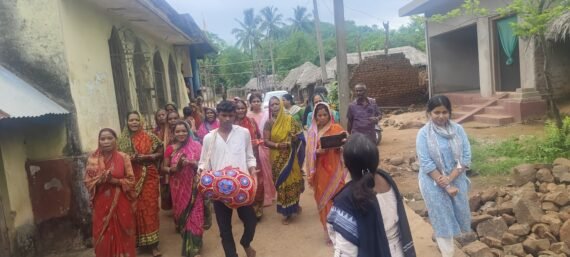 This morning, I woke up to heartwarming messages from Prashant and Bhagyalakshmi about the successful inauguration. I received a few pictures and videos that moved me to tears. The whole village came to celebrate with prayers. What began as a small initiative – just to learn their story – brought so much joy and confidence to the entire village. I have no words to express the inner joy I feel. I don’t know how much they will eventually benefit, but I am certain the confidence and happiness this brought to Gochha will inspire neighboring villages to dream, too.
This morning, I woke up to heartwarming messages from Prashant and Bhagyalakshmi about the successful inauguration. I received a few pictures and videos that moved me to tears. The whole village came to celebrate with prayers. What began as a small initiative – just to learn their story – brought so much joy and confidence to the entire village. I have no words to express the inner joy I feel. I don’t know how much they will eventually benefit, but I am certain the confidence and happiness this brought to Gochha will inspire neighboring villages to dream, too.
This is just one story among many. Across remote regions, resilience quietly thrives, and countless stories like this remain untold or too often taken for granted. By supporting sustainable livelihoods, we not only preserve tradition but also invest in empowering communities with dignity, sustainability, and lasting change.
What goes around comes around. And the happiness that came back to me was beyond words.

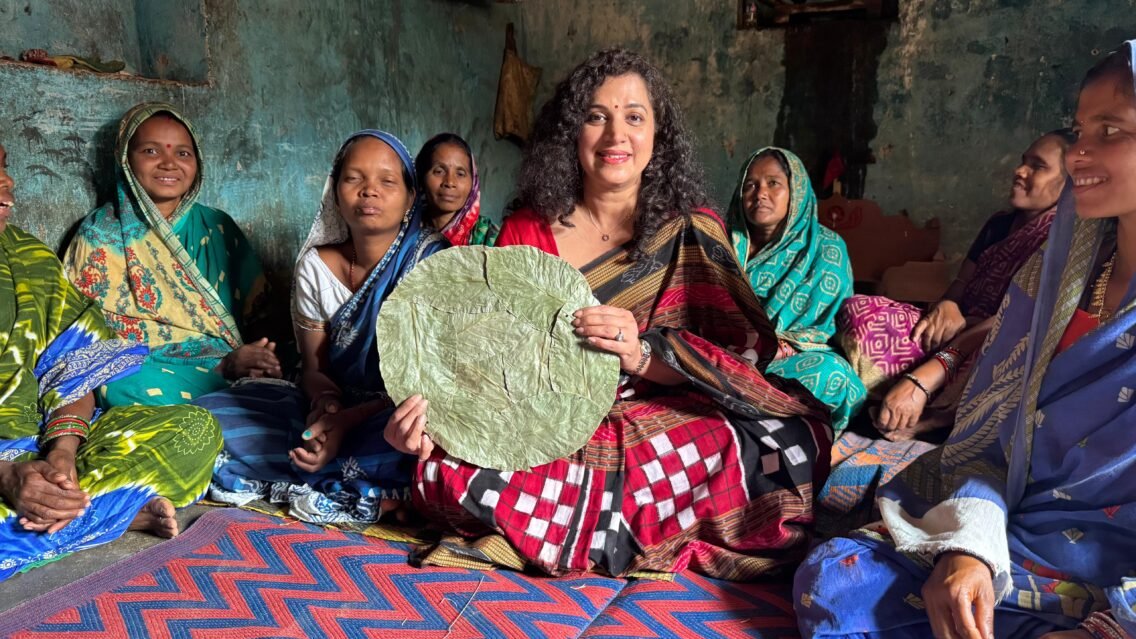
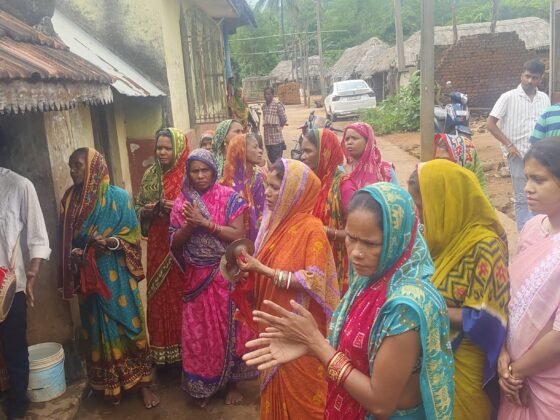
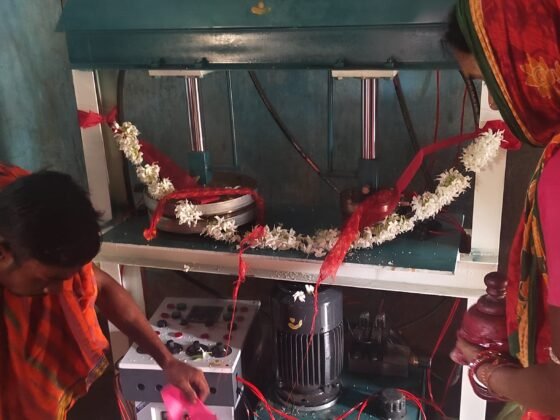
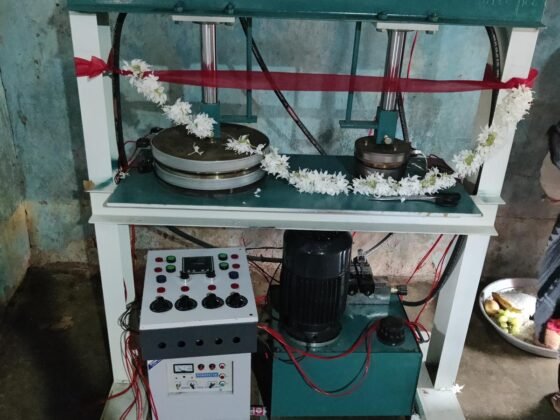
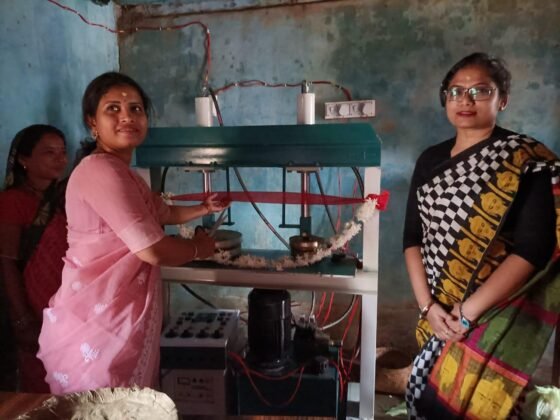
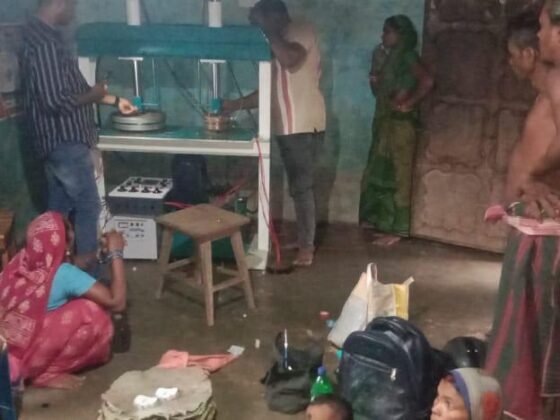
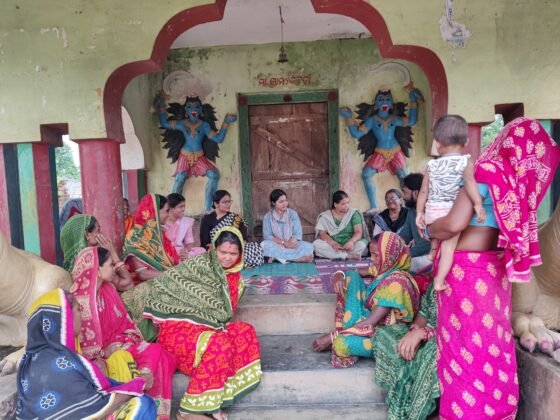
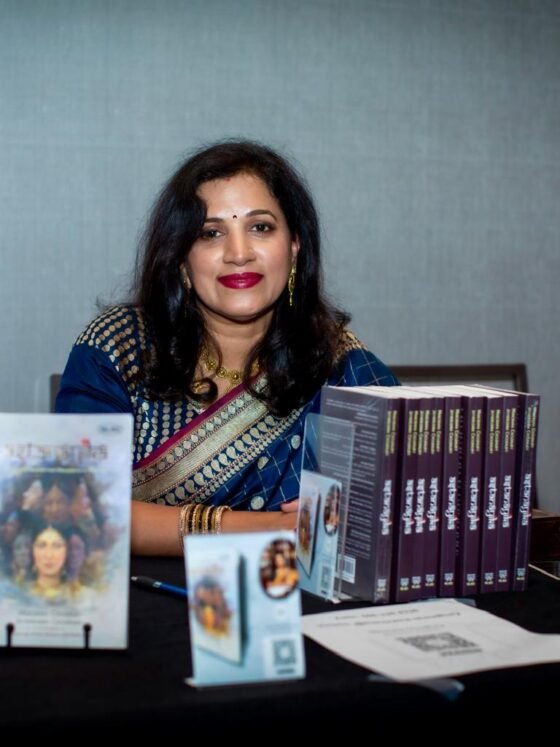
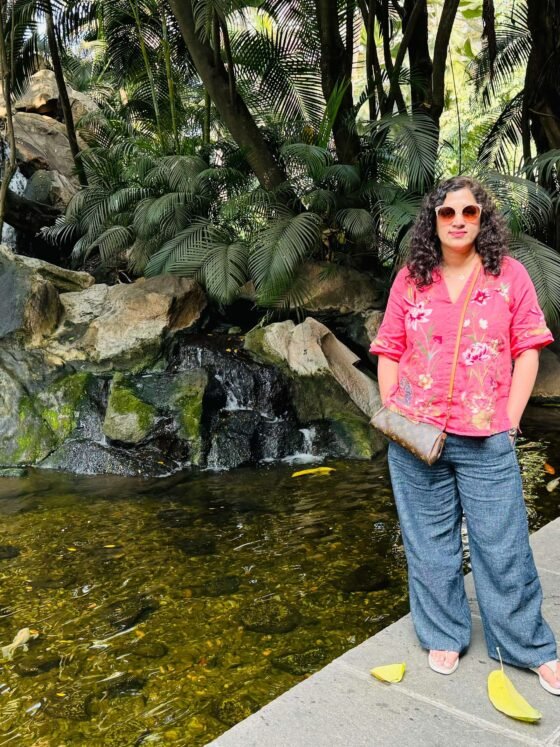
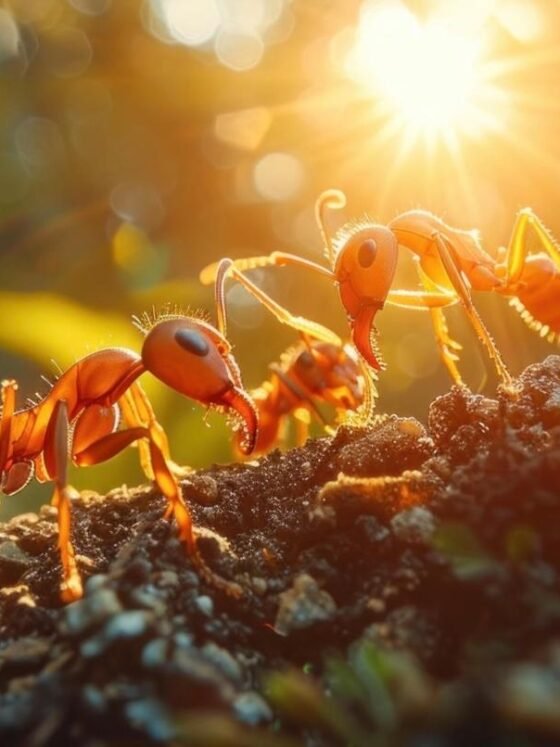
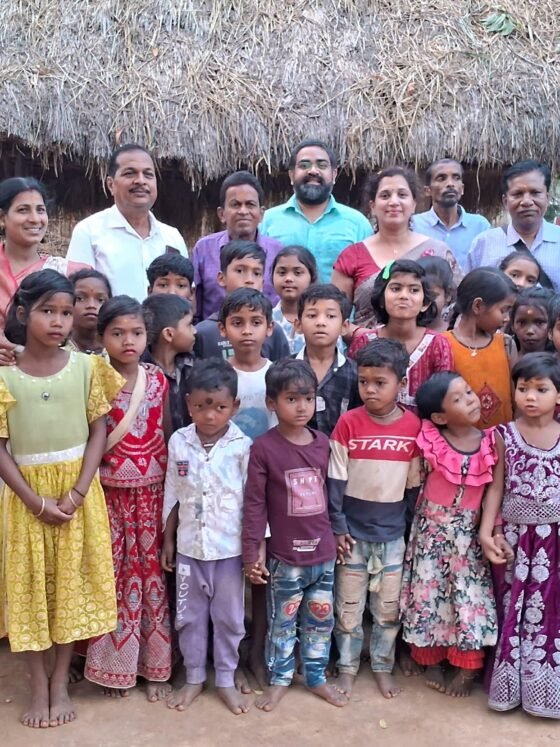
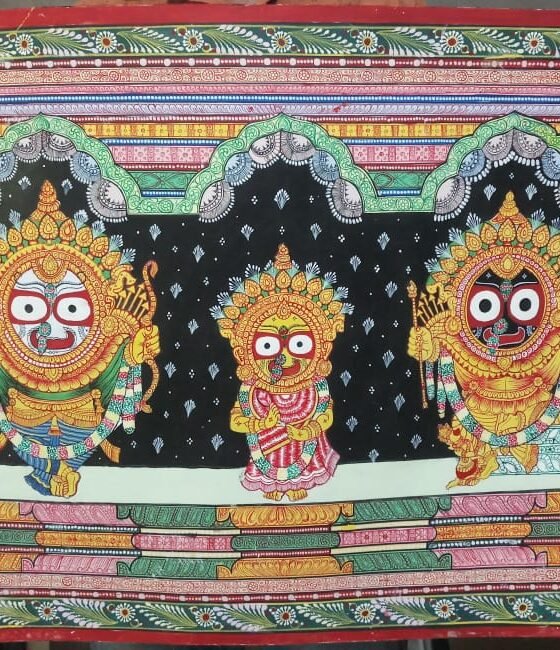
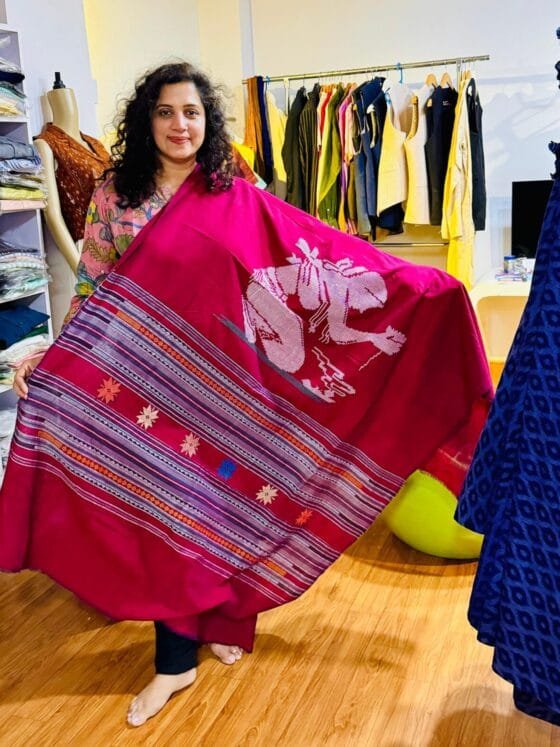

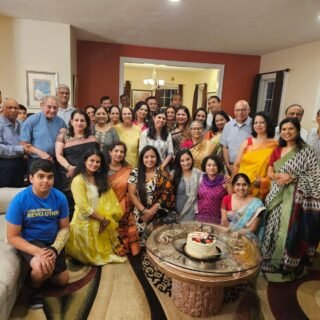
Subrat
06/26/2025“Happiness doesn’t result from what we get, but from what we give.” – Your selfless acts for those in need are a beautiful testament to that truth. Your compassion is deeply inspiring. May Sri Sri Thakur continue to bless you and your family with abundance, peace, and joy. Please keep up the noble work.
Manorama Choudhury
06/26/2025Much love and regards for your kind words. May Thakur bless us all. 🙏
Jyotsna Mishra
07/23/2025An inspiring and powerful story that revolves around creative thinking, timely initiative, reaching out to the appropriate community, and making a difference in the end. This is about empowering and empowers women. Thanks for sharing.
Manorama Choudhury
07/23/2025So grateful for your thoughtful reflection. It is inspiring and encouraging. Thank you and feel free to enjoy other blogs.
Dr. R. K. Das
06/29/2025Had gone through earlier the account of your visits to Ranpur and Sharanakul and making common cause with the tribal women earning their livelihoods by making paper plates from shala and siali leaves. It speaks highly for your empathy for the marginalized sections of our society, and your efforts to reach them the light of education through organizations like Ekalvidyalay. One will always expect wealthy Indians to dustribute happiness among these sections the way you do.
Manorama Choudhury
06/29/2025Thank you again for your time. One needs to be rich in heart and have an attitude of service. That passion and purpose help one find ways to make a difference. In this particular case, securing CSR funding made me realize that I not only touched the hearts of the villagers but also prompted a company to reflect on its corporate responsibilities. That deeper impact is something I truly cherish, for having played an instrumental role. Regards!